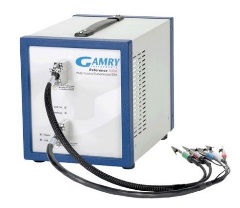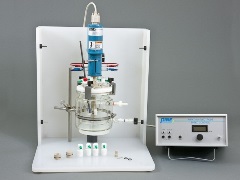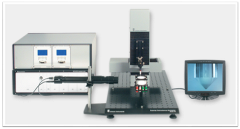Corrosion and Electrochemical Testing
IRC-AM has well-equipped laboratories for conducting corrosion and electrochemical studies in different applications on various metals and alloys using conventional and advanced electrochemical techniques. The center has comprehensive research expertise and capabilities in monitoring the corrosion rate of different metallic materials in different modes such as static and dynamic flow conditions and high temperature and pressure conditions involving hostile environments. We also focused on monitoring the corrosion phenomenon on the micron-scale range using the sophisticated scanning micro electrochemical systems involving four different techniques such as Scanning Electrochemical Microscopy (SECM), Scanning Vibrating Electrode Technique (SVET), Localized Impedance Spectroscopy (LEIS), and Scanning Kelvin Probe (SKP) Technique. Utilizing these localized micro-electrochemical methods to explore the interfacial interaction between aggressive media and corroding metals delivers a novel approach for imagining and understanding localized corrosion in the microscale range.
Our instrumentation facilities include :
Different models of Potentiostat/Galvanostat
- Electrochemical corrosion measurements in static mode.
- Quantitative information of corrosion rate, Qualitative information on passivation behavior, pitting potential, etc.
- Electrochemical impedance spectroscopy
- Linear polarization measurement
- Potentiodynamic polarization
- Cyclic Voltammetry
- Performance evaluation of corrosion inhibitors and protective coatings.
- Electrochemical studies for materials characterization in different applications

Dynamic electrochemical corrosion tests
- Determination of corrosion rate of metals and alloys under flow conditions
- Rotating Disc Electrode studies

High Temperature and High Pressure (HTHP) studies
- HTHP autoclave corrosion studies under static and dynamic conditions
- Maximum Operating Conditions: Temperature: 230 oC, Pressure: 1500 Psi.
In-situ Electrochemistry coupled with Atomic Force Microscopy
- Advanced surface analysis technique ideally suited for characterizing surfaces.
- Suited to measure electrochemical properties, and image biological cells in air and liquid environments.
M370 Scanning Electrochemical Workstation
- Scanning Probe Electrochemistry, designed for ultra-high resolution, non-contact, spatially resolved electrochemical measurements.
- Configurable system which will perform key scanning probe electrochemical techniques.
- Scanning Electrochemical Microscopy (SECM)
- Scanning Vibrating Electrode Technique (SVET)
- Localized Impedance Spectroscopy (LEIS)
- Scanning Kelvin Probe (SKP) Technique
